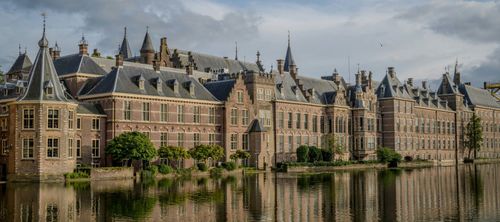The Dutch General Election Results 2025: How Did We Get Here?

On October 29 Dutch voters are heading to the polls for yet another General Election. What to think about the election results? At this event, political experts will discuss this and attempt to make sense of the conflicts that preceded them, as well as what the voters think.
*Please note: there will be no recording available afterwards this event*
The Dutch general election of November 2023 resulted in the formation of the Schoof cabinet in July 2024. This cabinet consisted of four parties: Party for Freedom (PVV), the People’s Party for Freedom and Democracy (VVD), New Social Contract (NSC) and the Farmer–Citizen Movement (BBB). Less than a year later, in June 2025, the Dutch government collapsed, and now the Dutch voters are heading back to the polls once more. While some did not get the radical change they had hoped for, others were surprised that this cabinet lasted even that long. This is because, from the start, the cabinet was riddled with conflicts, ultimately culminating in PVV leader Geert Wilders walking out of the coalition.
During this roundtable debate, political and communication scientists will discuss the election results in light of the political conflicts of the past years and, in particular, why voters ticked certain boxes on their ballots or decided not to use their vote at all. There will also be time for the audience to ask questions and later engage with the speakers and other attendees over free drinks.
About the speakers:
Rachid Azrout is an Assistant Professor of Political Communication at the University of Amsterdam. His research interests mainly lie in the interplay between media exposure and public opinion, and he studies this in relation to topics such as immigration, the European Union, polarisation, and party politics.
Linda Bos is an Associate Professor in Political Communication at the Amsterdam School of Communication Research (ASCoR). Linda is an expert in the broad field of populist political communication, studying the role of communication in the success of populist parties. Her broader research interests include electoral behaviour, election campaigns, media use, media effects, and political communication in general.
Sarah de Lange is Professor of Political Pluralism at the Department of Political Science at the University of Amsterdam. From 2016 to 2022 she held the Dr. J.M. Den Uyl chair, a chair established by the Wiardi Beckman Foundation. Her primary research interests focus on parties, party families, and party systems. Her work spans a broad geographical scope, examining party politics in a range of East and West European countries.
Tom van der Meer is Professor in Political Science, in particular Legitimacy, Inequality and Citizenship at the University of Amsterdam. He specializes in political trust, electoral behaviour, (ethnic diversity and) social capital, and research methods.
Gianna Maria Eick (moderator) is an Assistant Professor in Political Science at the University of Amsterdam, and she is a Theme Group Leader at the Amsterdam Centre for European Studies. Eick specialises in social rights, the development of new social policies, migration, Euroscepticism, and the increasing inequality in the wake of recent crises. She has received prestigious international research grants and prizes for her academic work, including her current Veni Talent Grant “Social investment and migration”.